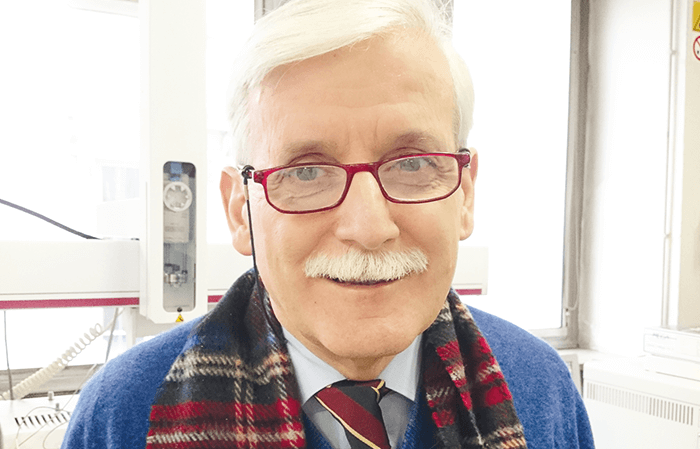
Why analytical chemistry? Serendipity has played an important role in my career. After obtaining my master’s degree in pure theoretical chemistry from the University of Turin, I was keen to continue in academia; however, PhD programs did not exist in the Italian university system back then. I asked several professors about potential scholarships and, eventually, an organic chemist with expertise in natural products and gas chromatography (GC) allowed me to join his laboratory – and the primary focus of my career hasn’t really changed since then. Moreover, I never left the University of Turin! Right now, I am focused on the analysis of plant volatiles. From a technique point of view, I’ve extended the use of enantioselective GC and multidimensional GC to gain an exhaustive picture of the volatile fractions of plants.
Why plants? I actually began with plants used in pharmaceuticals and now also work with plants used for food. Globalization is affecting the latter, in particular. Plant products arrive from all over the world – but sometimes the quality is second rate. Quality control within the pharma industry is very strict, but in other industries – food and cosmetics, for example – I believe there is room for improvement. For example, citrus fruit essential oils can often contain a mixture of different, cheaper, lower grade oils. Here, enantioselective GC is important as it allows us to determine enantiomeric excess or ratios, which are diagnostic parameters. You’ve spent over 40 years in academia – what’s changed in that time? Currently, I’m a full professor of pharmaceutical biology, but I’ve also been the director of my department and dean of the faculty of pharmacy in that time. I have to say, I am pleased to see the back of bureaucracy – especially as I’m near retirement! Of course, I still teach and I run a research laboratory. Things have certainly changed since the early 70s – some for the better and some downsides. One positive aspect is that it is much easier to tackle multidisciplinary projects; inter-laboratory collaborations bring together different skills and various specialists to deal with complex projects. But I’ve also noticed that increased flexibility can lead to a lack of identity or focus for some research groups (and research topics). In analytical chemistry, for example, I have seen too many people trying to do everything. You do need to have an open mind and wider knowledge of other analytical fields, but you also need expertise if you want to be (or stay) competitive. Another problem is the cost of research (and the difficulty in gaining finance) – a real challenge, particularly for smaller laboratories. And what about the students? I’m pleased to say we still have well-motivated students. Unfortunately, too few end up following academic career – instead, they are drawn by the allure of good industry salaries, which is not entirely bad – but it does mean we risk losing too many brilliant minds. Nevertheless, I have always believed that universities should work with industry in both basic and applied research; our laboratory has strong connections with various industries, which not only builds bridges for both applied and basic research, but also allows us to self-finance our laboratory. What are the main challenges facing analytical chemistry, today? In separations science, I don’t think there is sufficient understanding of fundamentals by students or customers; too many people see chromatography as a black box into which you can inject a sample and just wait for a result. But chromatographers are not magicians and separations do not happen by magic (although it sometimes seems like they do)! In reality, you need to understand what you are looking for, which is why it is so important to teach basic concepts. Of course, universities might not be able to train students in all modern technologies used in separation sciences – and that’s why collaboration between academic institutions and instrument manufacturers is so important. What has been most rewarding? I can’t give you a specific answer. However, I can say that gaining a reputation for excellence in separation science for our laboratory is definitely on the list. When I started my career, the laboratory was good at natural product chemistry – but not natural product analysis. I decided to transform the laboratory and bring it to a level of excellence for natural product analysis (in particular, volatiles), which is why I chose to spend time with Pat Sandra (who has been very influential for me over the years) at the University of Ghent first and then at the Research Institute for Chromatography (RIC) back in the 1980s and beyond. It’s also very rewarding when I see people from our laboratory win international acclaim. What can we expect from Riva 2016? I believe the International Symposium on Capillary Chromatography (ISCC) and the GC×GC Symposium in Riva del Garda are important symposia because they allow you to keep a finger on the pulse. For example, two fast-growing areas that demand attention include miniaturized techniques (micro GC, micro LC, and lab-on-chip) and the impact of chemistry on biology. At Riva 2016, we’ll see some very interesting new things in both areas, in particular for biological analysis – or rather chemical analysis applied to biology...




